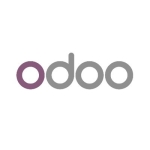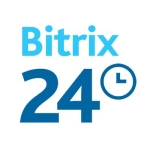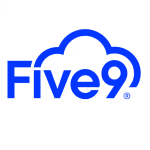What is our primary use case?
Microsoft Dynamics CRM is mainly used for our customer account management. We use it as a source of our customer reporting. We use it to work with customers' voices so that we can send out our surveys, and ask the customers about their satisfaction levels.
How has it helped my organization?
We are very strong in our customer centricity and orientation. Microsoft Dynamics CRM is a big part of that.
What is most valuable?
The most valuable features of Microsoft Dynamics CRM are its easy operations and functionality.
What needs improvement?
Microsoft Dynamics CRM can improve by adding more artificial intelligence. Additionally, they should add more modules, such as account-based management, that are available on other platforms such as salesforce.com.
It's a very good middle-of-the-road solution, but there are some functions that we would prefer.
In a feature release, it would be beneficial to have more inbound marketing and digital marketing. Additionally, features that allow us to manage campaigns better. A lot more artificial intelligence around understanding customer propensity to churn and purchase.
Buyer's Guide
Microsoft Dynamics CRM
October 2025
Learn what your peers think about Microsoft Dynamics CRM. Get advice and tips from experienced pros sharing their opinions. Updated: October 2025.
872,922 professionals have used our research since 2012.
For how long have I used the solution?
I have been using Microsoft Dynamics CRM for approximately three years.
What do I think about the stability of the solution?
Microsoft Dynamics CRM is highly stable.
What do I think about the scalability of the solution?
The scalability of Microsoft Dynamics CRM is very good.
We have eight people using this solution in my company, three from sales, two accounts, and three marketing and technical personnel.
How are customer service and support?
We have not had any problem with the support.
I rate the support from Microsoft Dynamics CRM a five out of five.
Which solution did I use previously and why did I switch?
We previously used SugarCRM, but then we decided to upgrade to Microsoft Dynamics CRM.
How was the initial setup?
The implementation of Microsoft Dynamics CRM was not complex. The full deployment of the solution took less than a week.
I rate the initial setup of Microsoft Dynamics CRM a four out of five.
What about the implementation team?
We used an implementation team from one of the Microsoft Dynamics CRM partners, and it went very smoothly.
The maintenance of Microsoft Dynamics CRM is very easy. We have a team that supports the solution. It's in the cloud and it updates itself with all the upgrades and updates.
What's my experience with pricing, setup cost, and licensing?
For the price of Microsoft Dynamics CRM, you receive a lot of comprehensive functionality. Additionally, it integrates very well. We pay approximately $100 a month to use the solution and we do not have any additional costs.
Which other solutions did I evaluate?
We were evaluating salesforce.com and a couple of others but we chose Microsoft Dynamics CRM in the end. We wanted to standardize our Microsoft solutions. We are a business intelligence data company and we were already using Power BI and MySQL.
What other advice do I have?
The best advice I can give is whoever wants to implement the solution must understand its functionality and what scope they want from the solution. If they want a standard line of functionality then Microsoft Dynamics CRM will do it. If they want a particular marketing capability and various other features that go with it, such as algorithms and AI, et cetera, then they might want to look at another solution.
I rate Microsoft Dynamics CRM a seven out of ten.
My rating reflects the missing functionality, compared to some of the more heavyweight solutions. For example, saleforce.com and Optimove have a lot more functionality.
Which deployment model are you using for this solution?
Public Cloud
Disclosure: My company does not have a business relationship with this vendor other than being a customer.





















